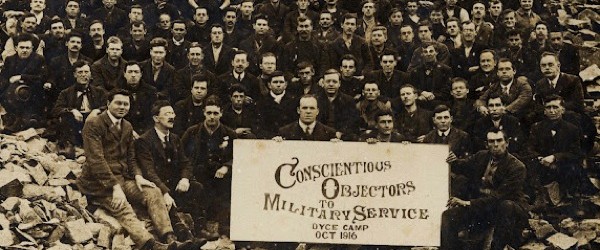
Finding ‘contemporary resonance’ in World War I
Interviews, Writers“There’s no point writing about the past unless there’s some sort of contemporary resonance.”
These may seem like strange words coming from Irish novelist John Boyne, who has almost exclusively written about the past and achieved worldwide renown for his book The Boy in the Striped Pajamas, which was set during the Holocaust. But during a stop in Vancouver to promote his World War I novel The Absolutist, he told ZOUCH that he’s always looking for parallels between the past and the present.
“I don’t want readers to look at this and go `oh, he’s writing about the Iraq War’, because I’m not,” said Boyne. “But I always write with one eye towards what’s happening now.”
The Absolutist tells the story of two teenagers, Will and Tristan, during the war. And though the conflict has already been written about exhaustively, Boyne felt there was more to learn.
“We’re told continually told that these memories should be kept alive, and we can’t forget. The point comes when all the people who were there are no longer with us. Are we just supposed to stop? Have we said everything there is to say? I think if you have something to say, say it.”
Boyne said there were two elements of his story that he feels have been under-represented in past literature. The first was the role of conscientious objectors, and the effect their actions would have on their families back home.
“Other soldiers from a town would of course be out dying. How would the parents, or the sister of the boy that laid down his guns, be treated?” said Boyne.
The second element Boyne felt had been overlooked was the gay relationships that must have existed between men fighting in the trenches.
“In the intimacy of war and the horror of the trenches, relationships of one form or another must have formed. And this was something I’d never read about, so I wanted to explore it,” he said.
Boyne felt this topic was especially relevant, as the United States is currently grappling with the recent overturning of Don’t Ask, Don’t Tell. During the First World War, homosexuality was illegal. And though we’ve progressed significantly, Boyne said he was amazed at the level of hatred that still exists towards homosexuals in the military.
“The unsettling thing is that it’s nearly a century later,” he said. “A couple of months ago I was watching the Republican primaries, and it was one of those meetings where they had three or four candidates on stage. They had a soldier on the screen from Iraq. The audience goes crazy applauding. Then he prefaces what he’s saying by mentioning he’s a gay soldier, and they boo him.”
Boyne was disgusted.
“I found it stunning that the audience would respond that way. Later that day, that soldier may have been killed,” he said. “The level of hatred is amazing. I mean, it’s one simple fact about who he is.”
Boyne feels conscientious objectors are equally controversial. In fact, the title of the book refers to individuals whose beliefs are even more extreme, and rather than serving as stretcher-bearers or helping out beyond the front lines, they refuse to participate in the war effort at all. His character Will is one such person.
And Boyne felts Will’s story was an important one to tell.
“War, simply put, is not a good thing,” he said. “Most people, surely, should be opposed to war.”























